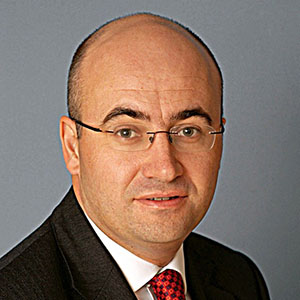I can’t remember often in my career feeling quite the degree of responsibility that I do as co-Chair of the Taskforce set up to review children and young people’s mental health provision.

We have now had the first meeting of the whole Children and young people’s mental health and well-being taskforce and are busy establishing the expert sub-groups. Looking around the room at that first meeting I saw people who, in one way or another, had given much of their working lives to this cause. And of course there is then the critical input of young people, parents and guardians.
There was consensus from the outset that we need radical change in how we promote, protect and care for young people’s mental health. The repeated call was for a shift to a truly child-centred approach. There was also a shared recognition that in many ways and many places we have got stuck in an institutional slough that expects young people and their families to fit in with outdated and remote service models.
That isn’t to say there isn’t great work going on. Speaking to young people and parents on my recent visit to Leeds CAMHS reminded me of the value placed on this kind of care and support. The Taskforce also recognises there have been recent positive gains, not least through the roll out of the Improving Access to Psychological Therapies programme over the last few years.
But overall, we know we still have to make a fundamental shift. We have to move to a system where choices and decisions flow wherever possible from those who know the young person best - the individual themselves, but also their family, GP and teachers, with other professionals helping them source the help and treatment they need, when they need it, where they need it.
In this context we can begin to see how our work can cohere. We have identified six main priorities:
First, we must ensure that everyone in the system has access to the best possible comparable information on the quality of provision and the outcomes being achieved. In doing so we will empower families and professionals in the choices they make and drive up quality of provision.
We must define what a great local offer looks like; we can already begin to see this must mean a greater emphasis on the universal offer that makes child mental health every professional’s responsibility for every child; from pregnancy onwards. Such an offer will also need to avoid artificial transition points. It should not give up on young people because they can’t fit in with our settings and schedules. And it certainly shouldn’t leave young people and families in limbo on long waiting lists.
We will need to work through how one creates and sustains a coordinated local system that can deliver this very different offer. Where is the best practice now and how do we make it the norm? And how do we eliminate the barriers to success, such as the current divide between different tiers of provision?
We will need to review how we ensure high quality and safe provision and the role of standards and regulation on pursuit of those fundamental goals.
Our work will also raise important questions that we must try to answer about capability and capacity in the system including how we make best use of whatever level of resources are available going forwards.
And we must explore questions of identity. How do we normalise access to support and treatment? How do we focus on enabling young people to achieve meaningful outcomes that we all want – not just clinical recovery but to fulfil ambitions and pursue prospects, and generally lead a happy and contributing life.
In the breadth of our own ambition, we will go deeper in addressing the needs of particular cohorts – children with learning disabilities, children in care and adopted children, victims of sexual abuse and exploitation and young people within the youth justice system, to name some key groups.
There will be sceptics of our work – the timing, the resource context, past disappointments. At our first meeting we took time to expose and share our own doubts, our own limiting assumptions.
We are certainly under no illusions as to the scale of the challenge that has confounded many before us. We know that whatever progress we can make must be valuable, at the individual, familial and societal level. But quite honestly, we are not pitching for incremental gains. I was left in no doubts at that first meeting that this is a Taskforce wanting to shift the paradigm on how we support and promote child mental health and in doing so, enhance how we show our commitment and compassion to some of our most vulnerable children and young people.
The terms of reference and membership of the Children and Young People's Mental Health Taskforce can be found here.
I will continue to blog about our progress as we continue our work. We would very much welcome any thoughts, insights and evidence you can provide.
